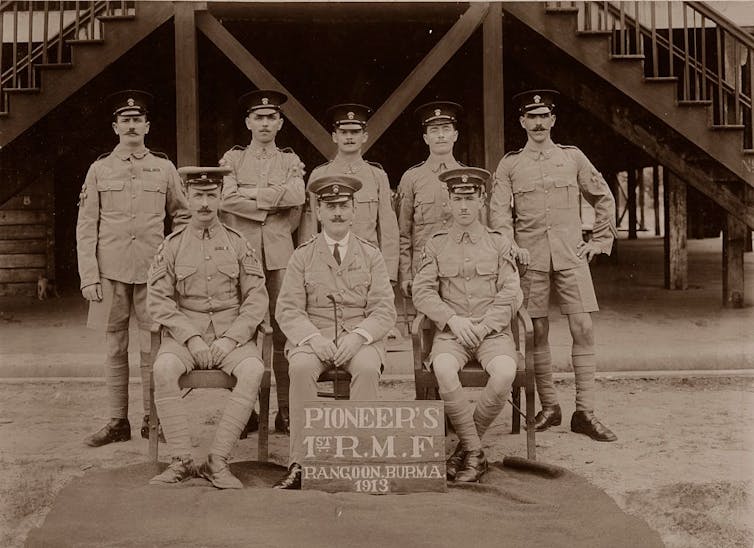Is Turkey’s recent spelling change about being more authentically Turkish? Or is there more to the story?
In June 2022, the United Nations agreed to change the spelling of the country known in the English-speaking world as Turkey to Türkiye, heeding a request by the government of Turkish President Recep Tayyip Erdogan. In January 2023, the U.S. State Department also agreed to adopt the requested change in its written communications.
A number of news outlets have reported that Turkey has changed its name, but that’s not really true – Turks have called their country Türkiye since 1923, when Turkey became the successor state to the Ottoman Empire. The change is less like Rhodesia becoming Zimbabwe in 1980 and more akin to what would happen if the country known in English as Germany asked that the world refer to it as Deutschland, which is the way the Germans say it.
But Erdogan’s request – and the U.N.’s decision to follow suit – does raise the question of why countries seek to change their names.
From Burma to Myanmar
As Julie Tetel Andresen and I explain in our book “Languages in the World: How History, Culture, and Politics Shape Language,” the answer almost always has to do with politics and power. It might be inspired by domestic politics, as is likely the case with Türkiye, or it could represent a shift in regional or global power dynamics.
The case of Burma, which officially renamed itself Myanmar in 1989, illustrates both of these dynamics.
From 1824 to 1948, Burma was ruled by Britain, which set up colonies in the interior of the country to control the production of timber, oil and minerals. Later settlements along the fertile Irrawaddy Delta coastline controlled the even more profitable production of rice.
British administrators, as they did throughout their colonies, played favorites with different ethnic groups on the ground, benefiting those who were willing to learn English and convert to Christianity. In British colonial Burma, it was the Karens – a large ethnic minority group whose members speak a number of related languages, including Pa’O and Karenni – who played this role.

Hulton Archive/Getty Images
During the 100 years of British rule, the Karens cultivated a sense of national identity that became so strong that they called for the formation of an independent state, seemingly with the support of the British. The divide between the Karens and the Burmans – the majority ethnic group – grew so stark that when the Japanese occupied British Burma in 1942 during World War II, the Karens sided with the British, while the Burmans sided with the Japanese. Things only worsened when the British abruptly pulled out of Burma in 1948, leaving a power vacuum that the Burmans quickly filled.
In 1989, Burma’s military dictatorship set up a language commission to replace or modify the spellings given to Burmese cities by the British. They changed the capital city from Rangoon to Yangon. In a surprise to the world, Burma became Myanmar.
In the Burmese language, differences in register, or specific styles of the language used for specific purposes, are common. In colloquial, spoken Burmese, the country is known as Bama, from which the British derived Burma. In the formal, written literary style, the country is known as Myanma.
The shift from Burma to Myanmar represented, on the one hand, a postcolonial power move intended to signal distance from British Burma and its colonial legacy. At the same time, the name change waded into domestic ethnopolitics. Bama is preferred among non-elites, including many ethnolinguistic minority groups that don’t have access to the formal register. However, Burman elites have tended to use Myanma.
The move showed that Burman elites in positions of power and authority, who are more likely to use the formal literary style, were calling the shots.
Excising exonyms
Not all name changes are quite as complicated.
For hundreds of years, the country currently known in English as Thailand was referred to as Siam, a word likely of Chinese origin that Portuguese colonists started using in the 16th century.
Linguists call words like Siam exonyms – names applied by outsiders with no particular connection to the named group. When Thailand declared itself a constitutional monarchy in 1939, it simply requested that the exonym be corrected, and that the world refer to its country using a variant of the local term Thailand.
Exonym corrections have been commonplace in postcolonial Africa. The change from Zaire, a Portuguese variant of a Bantu word, to the Democratic Republic of the Congo and the change from Rhodesia – named for Cecil Rhodes, a British colonizer – to Zimbabwe are just two examples.
It’s unclear what motivated Erdogan’s request – the government claims Türkiye avoids confusion with the bird among English speakers. Oddly enough, Turkey the country does have a connection to the bird. In the 16th century, English speakers noticed similarities between turkeys, which the Aztecs had domesticated, and guinea fowl, a bird imported from Africa to Europe via Turkey.
But some observers speculate that putting forth a word of Turkish origin fits seamlessly within Erdogan’s brand of nationalism and may divert attention from a weak economy and political turmoil.
How the language politics will play in the wake of the devastating earthquake that has thus far killed more than 35,000 Turks is anyone’s guess.




